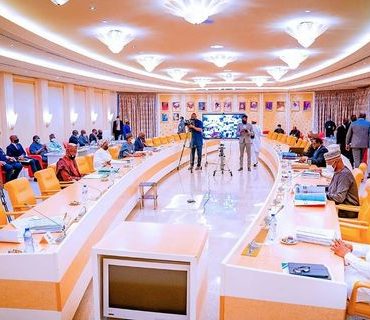FG Set To Reintroduce Toll Gates On Federal Highways

The administration of President Muhammadu Buhari has expressed its willingness to reintroduce toll gates on designated dual carriageways across the country.
Minister of Works and Housing, Babatunde Fashola, disclosed this yesterday while briefing newsmen at the end of the weekly virtual Federal Executive Council (FEC) meeting at the State House, Abuja.
President Obasanjo cancelled tolling on highways saying it had outlived it’s usefulness and had become a conduit for corruption with negligible revenue to the government.
Fashola said that bicycles, tricycles, motorcycles, diplomatic vehicles, military and paramilitary vehicles will be exempted from paying toll fees, while cars, SUVs, private buses, commercial buses, luxury buses and trucks will pay N200, N300, N150 and N500 respectively.
“Recommended Tolling Fees in the Approved Policy and Regulations are as follows: Cars: N200, SUVs: N300, Private Buses: N300, Commercial Buses: N150, Luxury Buses and Trucks: N500.”
The new policy comes amidst biting inflation across the country and failing economy which he left many Nigerians barely surviving and unable to get affordable food.
Major highlights of new Tolling policy are:
1. It will be an Open Tolling system (just like the one that used to be in existence in the country), instead of a Closed Tolling system.
(A Closed Tolling system means that you pay per distance traveled (‘distance-dependent’), while Open Tolling means you pay a fixed/flat rate that is not dependent on distance traveled)
2. Only dual carriageways owned by the Federal Government will be eligible for tolling by the Federal Government.
(Of the 35,000km of Federal Roads in existence in the country, only 5,050km are dual carriageway).
Federal carriageways that are single, i.e. undivided highways will not be tolled.
The only exceptions here will be some bridges, which are listed in the Policy.
3. Toll Revenues will be used to maintain the roads and also to repay investors who have invested in building or completing a road under the Highway Development Management Initiative (HDMI).
4. Electronic Toll Collection and Management systems will be prioritized over Cash systems.
5. The following will be exempted from Tolling: Bicycles, Tricycles, Motorcycles, Diplomatic vehicles, Military and Paramilitary vehicles.
6. The Tolling Policy is a broad National framework that will serve as a guide for States and Local Governments who seek to implement their own Tolling Policies.
(As noted earlier, only about 16% of the total road network in Nigeria belongs to the Federal Government.
States own/control roughly the same amount as the FG, while the rest – amounting to two-thirds are last-mile roads belonging to and under the responsibility of Local Governments).
7. People who live around Toll Plaza Areas will benefit from what is called ‘Frequent User’ discounts, in line with global best practice.
8. Recommended Tolling Fees in the Approved Policy and Regulations are as follows:
Cars: N200
SUVs: N300
Private Buses: N300
Commercial Buses: N150
Luxury Buses and Trucks: N500
9. According to the Honorable Minister, the Federal Highways Act vests the power to toll (Federal Roads) in the Minister responsible for roads, but implementation of any tolling policy/regime involves many processes and multiple agencies, and therefore requires multi-stakeholder collaboration.
10. According to the Minister, it is important to stress that even with this policy now approved, tolling is not going to start immediately.
He very clearly said that Tolling will not start “until the roads are motorable.”
This policy is a necessary condition for the implementation of Tolling, and it is now for people to start getting familiar with it and for relevant stakeholders to start using it as a basis for their financial modeling and investment analysis, ahead of the eventual rollout of Toll Plazas.
Lawyard is a legal media and services platform that provides enlightenment and access to legal services to members of the public (individuals and businesses) while also availing lawyers of needed information on new trends and resources in various areas of legal practice.













